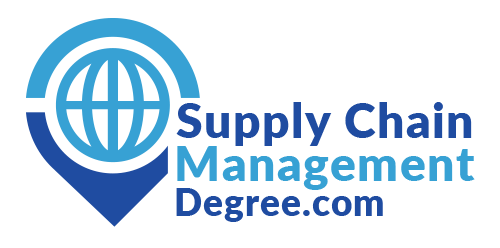How an Election Year Affects the Supply Chain
Election years can bring significant shifts in political, economic, and regulatory landscapes, which can have a substantial impact on supply chains. The uncertainty and changes that accompany an election can affect everything from trade policies and regulatory environments to consumer behavior and market stability. Understanding these effects can help businesses prepare and adapt their supply chains to navigate the complexities of an election year effectively. Here’s a look at how an election year can influence the supply chain and strategies to manage these impacts.
Political Uncertainty and Policy Changes
One of the most significant impacts of an election year on the supply chain is the potential for political uncertainty and changes in policies. Different candidates or parties may propose varying approaches to trade, taxation, labor laws, and environmental regulations. Businesses may face uncertainty regarding which policies will be implemented and how they will affect operations. Staying informed about political developments and engaging in scenario planning can help businesses prepare for potential changes and adjust their strategies accordingly.
Shifts in Trade Policies and Tariffs
Election years can lead to shifts in trade policies and tariffs, especially if there is a change in administration. New trade agreements or adjustments to existing ones can impact the cost and availability of raw materials and finished goods. Companies should monitor trade policy proposals and prepare for potential changes in tariffs or import/export regulations. Diversifying suppliers and exploring alternative sourcing options can help mitigate risks associated with changes in trade policies.
Regulatory Changes and Compliance
Political changes can also result in new regulations or amendments to existing ones, affecting various aspects of the supply chain, including labor practices, environmental standards, and safety requirements. Businesses need to stay updated on regulatory changes and ensure compliance to avoid disruptions and penalties. Engaging with industry associations and regulatory bodies can provide valuable insights and help businesses adapt to new requirements.
Economic Uncertainty and Market Volatility
Election years can introduce economic uncertainty and market volatility, which can impact supply chain stability. Fluctuations in consumer confidence, spending, and investment can affect demand for products and services. Businesses should focus on improving supply chain resilience by enhancing forecasting accuracy, managing inventory levels, and building flexibility into their operations to respond to economic shifts.
Changes in Government Spending and Infrastructure Projects
Elections can lead to changes in government spending priorities and infrastructure projects. New policies or initiatives may influence demand for certain products or materials, affecting supply chains in industries such as construction, manufacturing, and technology. Businesses should monitor proposed government spending plans and infrastructure projects to identify potential opportunities or challenges for their supply chains.
Consumer Behavior and Purchasing Patterns
Political campaigns and election-related events can influence consumer behavior and purchasing patterns. During an election year, consumer sentiment may shift based on political developments, affecting demand for various products and services. Understanding these trends and adapting marketing and sales strategies can help businesses align with changing consumer preferences and maintain demand stability.
Supply Chain Disruptions and Risk Management
Political uncertainty and changes in policies can lead to disruptions in the supply chain, such as delays in shipping, changes in logistics, or challenges with customs and border controls. Businesses should strengthen their risk management strategies by identifying potential vulnerabilities, developing contingency plans, and building relationships with reliable suppliers and logistics partners to minimize the impact of disruptions.
Opportunities for Strategic Adaptation
While election years can present challenges, they also offer opportunities for strategic adaptation. Businesses can leverage political changes to their advantage by identifying new markets, exploring innovative solutions, or aligning with emerging trends. By staying agile and proactive, companies can position themselves to capitalize on opportunities and navigate the complexities of an election year effectively.
Engaging with Stakeholders and Advocating for Interests
Active engagement with stakeholders, including industry groups, policymakers, and community leaders, can help businesses stay informed and advocate for their interests during an election year. Participating in industry discussions, providing feedback on policy proposals, and building relationships with decision-makers can influence outcomes and ensure that business perspectives are considered in the political arena.
Long-Term Planning and Strategic Vision
Finally, while addressing immediate impacts of an election year is important, businesses should also focus on long-term planning and strategic vision. Investing in supply chain improvements, technology, and sustainability initiatives can enhance overall resilience and position companies for future success, regardless of political changes.
An election year can introduce various challenges and opportunities for the supply chain, from political uncertainty and policy changes to shifts in consumer behavior and economic conditions. By staying informed, adapting strategies, and strengthening risk management, businesses can navigate the complexities of an election year and maintain supply chain stability. Embracing flexibility and long-term planning will help companies thrive in a dynamic political and economic environment.



